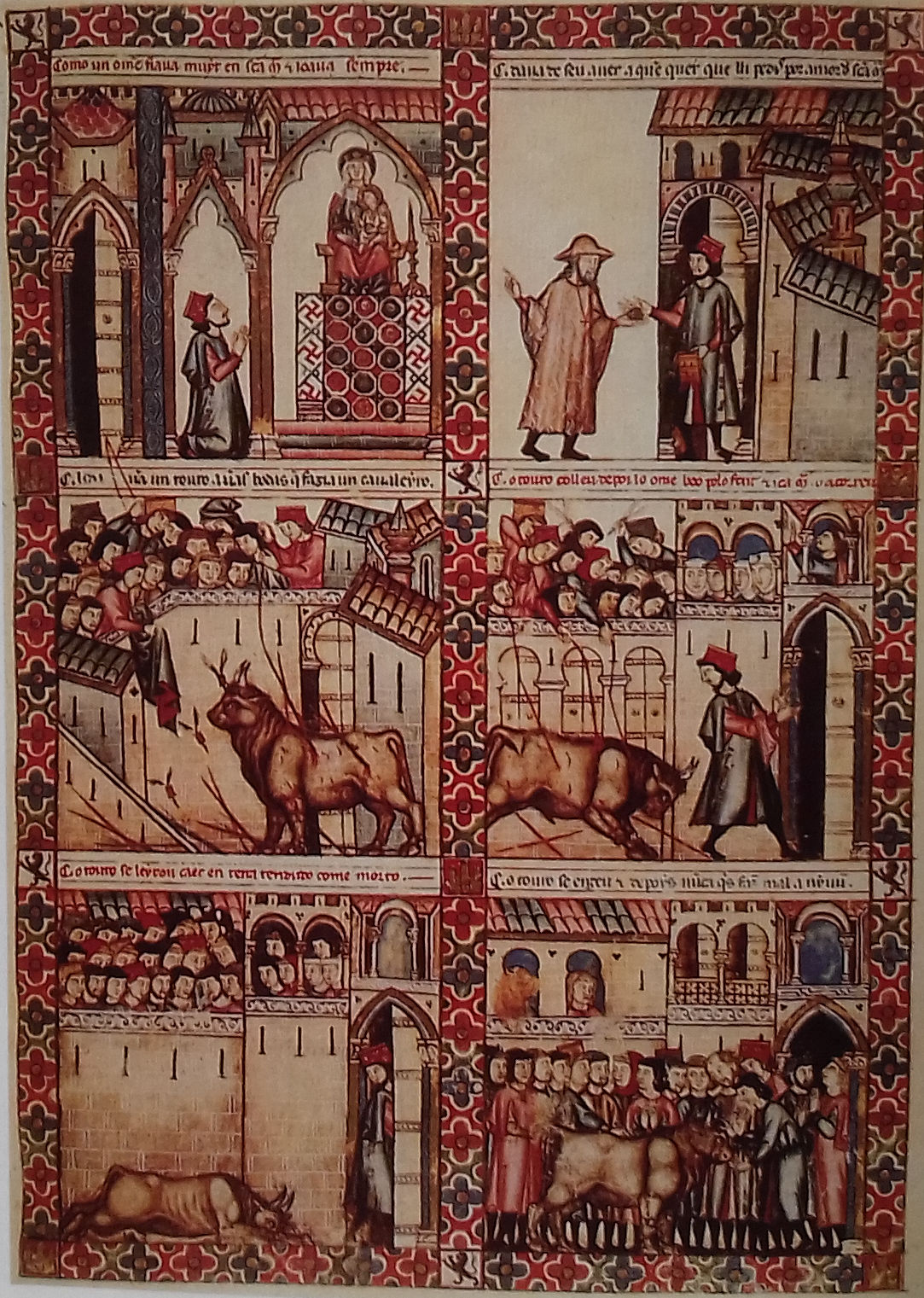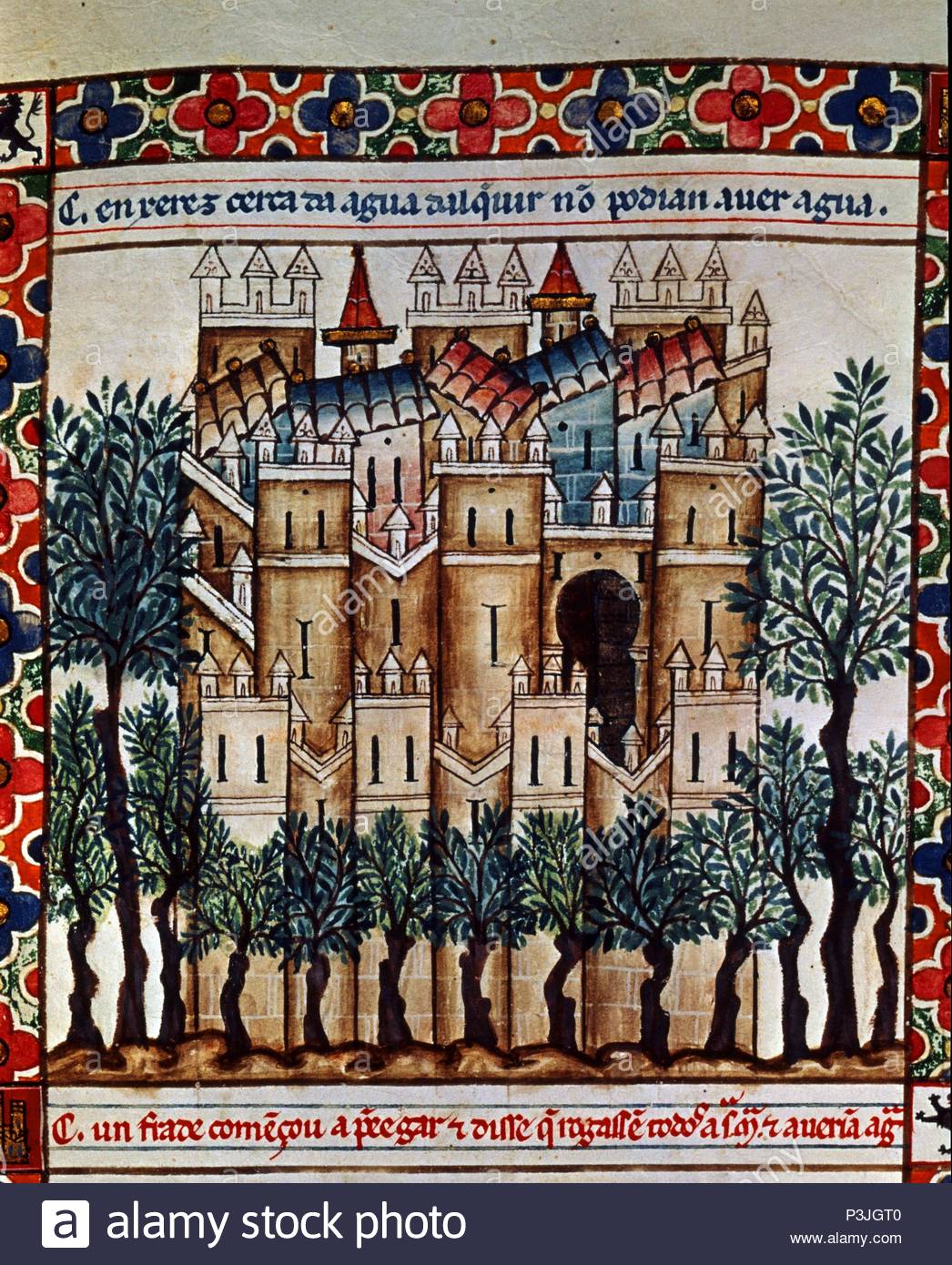Table of Contents

(remove this paragraph once the translation is finished)
Perličky ze středověké Kastílie - část první
Korida (Corrida de toros)
Sherry
Sherry is made for centuries from grapes grown on the outskirts of city Xeres in Andalusia. Viniculture had been imported to Jerez region around 1100 BC by Phoenicians, and Romans continued the tradition. Moors had conquered the area in 711 AD and Moor alchemists combined wine-making with their knowlegde of distillation. This led to development of brandy and sherry. Wine production under Muslim reign had continued for next five centuries. In 966 AD, caliph Al-Hakam II issued a command to destroy all vineyards. The residents of Xeres had protested vigorously, stating, that the vineyards provide raisins to feed the Moorish armies. The caliph decided to spare two thirds of the vineyards.
In 1264 AD, Moorish inhabitants of Xeres led uprising against Christian rule of Nuňo Gonzáles de Lara and expelled him from the city. Alfonso X. laid siege to the insurgent city and threatened to destroy vineyards and olive grooves. Xeres capitulated and Alfonso banished its Muslim inhabitans from his kingdom. The production of sherry grew significantly and its export into the whole Europe increased.
By the end of 16th century sherry was considered to be the best wine in the world. Columbus brought sherry to the New World. Magellan had spent more money for sherry than he had for weapons, when preparing for the travel around the world in 1519 AD. Shakespeare wrote about sherry, Edgar Allan Poe immortalized Amontillado in his novel and Monty Python's Flying Circus featured sherry in tenth episode in the third TV season.
In “Cantigas de Santa Maria” Alfonso X. mentions vineyards of Xeres in song 359, and promotes the whole region in more than next ten songs. He also describes the revolt of Muslims in the city. Xeres is mentioned in “Estoria general” and in “Siete partidas” as well.
We are looking forward to bring a cask of Amontillado to the events of Hradecký dvůr!
author: Vít Hrachový, English translation by Cyril Dušek

